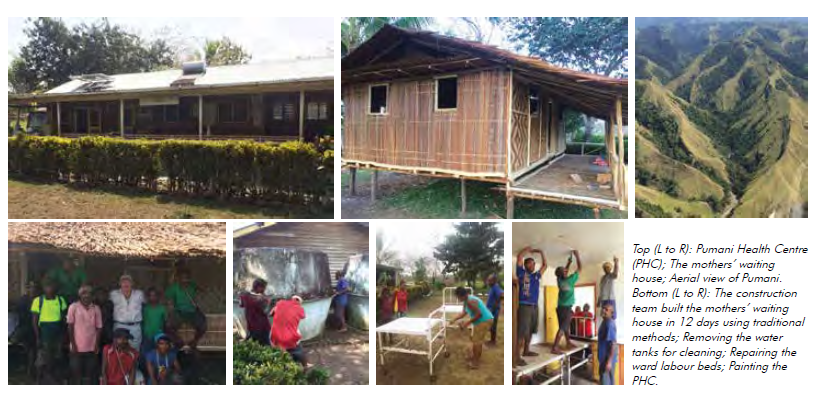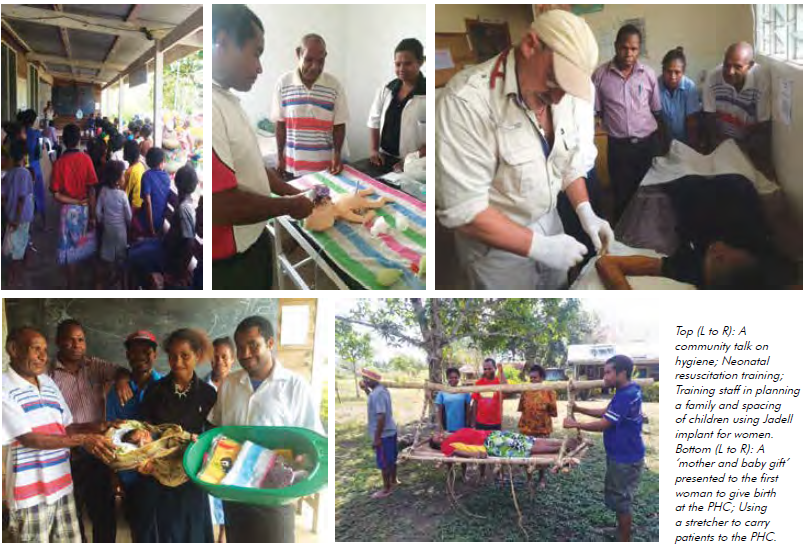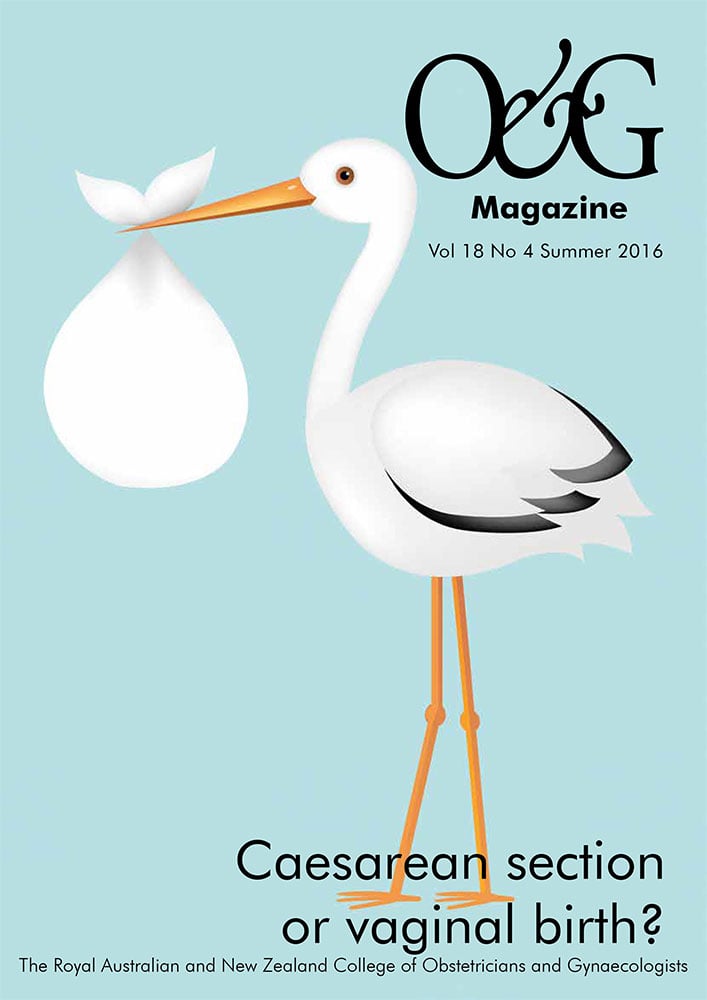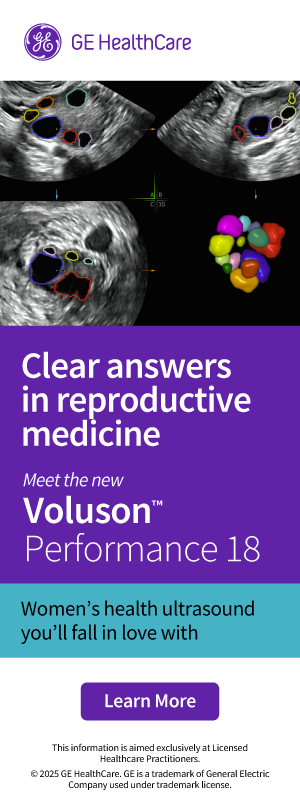Barry Kirby came to medicine through an unconventional pathway. A former chippie who had been building houses in Papua New Guinea (PNG), Barry succumbed to a long-suppressed desire to study medicine at the age of 40 after providing aid to an ill woman who later died.
At the age of 52, Barry returned to PNG a freshly-minted doctor. Many challenged face the women of remote Milne Bay Province where he provides obstetric services, and his chippie skills often still come in handy.
The rate of maternal death in PNG is estimated to be more than one in every 30 across a lifetime, and these tragic losses are caused by many contributing factors. Dr Kirby is on the frontline of combating them, one by one. He tries to address all the issues that might prevent women from going to their closest health centre – where a supervised birth can mean the difference between life and death.
Women don’t seek skilled care for birth for many reasons. There may be no place to stay while waiting for the baby to come – no running water, toilets or even lighting at health centres. Staffing issues and dilapidated labour wards, with no reliable pathways to medivac a mother in trouble, raise hurdles in convincing pregnant women they will have a better outcome away from their home village.
Barry Kirby’s Safe Motherhood Program, coordinated by Australian maternal health charity Send Hope Not Flowers and with financial the backing of the Australian Government through its Direct Aid Program, is a new and holistic approach.
The program is being extended to Pumani, Agaun, Ikara and Suau health centres in the Milne Bay Province. These health centres are the most isolated clinics in area and have been largely neglected because of their extreme isolation. Pumani, Agaun and Ikara are only accessible by air or trekking in and Suau is accessible by sea.
Dr Kirby reminds us that attempts to reduce the extraordinary maternal death rate, ‘must include intervention outside the normal scope of our medical intervention to be effective.’ A recent working bee at the Pumani Health Centre on the North Coast of Milne Bay showed how this unstoppable Australian doctor was required to undertake works beyond the skill set of many.

He oversaw a massive construction, renovation and scavenging program to build a mothers’ waiting house, a four-bedroom facility constructed in traditional style – with round saplings for framing with a sago leaf roof, bamboo walls and floor – by a group of dedicated workers in just 12 days.
The bush material waiting house cost just A$700. The houses are cool and comfortable in the hottest tropical climate for the ‘long-distance’ mums, and last seven to ten years without maintenance.
It’s a small amount of money to provide a little safety and comfort for women in the final days of their pregnancy. The program also provides a per diem for mothers to purchase market food while they are at the waiting house.

Mortality rates have mostly gone unrecorded and, until Dr Kirby’s trip to Pumani, there was no running water or lights in the health centre. The first thing Dr Kirby did before he even started his training and clinical work was to clean, renovate and repair the health centre. Ceilings were replaced, walls painted, beds repaired.
The remoteness of Pumani is extremely difficult for the health clinic staff. Until now, there had been no option to medivac mothers out who were facing difficulties.
This soon changed after Dr Kirby arrived. He worked with the locals to make stretchers to carry patients. He found an abandoned airstrip that no plane had landed on in 20 years and engaged 50 local workmen to clear the airstrip and make it fit for an aircraft to land so aero-medical evacuations could take place.
With one of the highest maternal mortality rates in the world, it is this holistic approach to reducing maternal mortality – the practical entives and the medical interventions – that is going to create and sustain change in these regions of PNG.
Proving that old chippies never lose their touch, Dr Kirby did some hands-on restoration of decrepit water tanks that had been left to rot. With the help of villagers, he split the tanks apart and cleaned them, repaired them, then scavenged an old down pipe from the roof to fit into the tank. The first drops of running water in a decade soon came to the centre.
Elsewhere, Dr Kirby’s incredible ‘mother and baby gift’ incentive continues to be extended to new areas. Mothers who present for a birth at a health centre receive basic supplies for themselves and for babies. It is a simple and low-cost initiative – again funded by Send Hope Not Flowers – which tackles entrenched village birth culture head-on and gives mothers a reason to make the journey to her nearest health centre.
Mothers are far less likely to die in childbirth when trained health centre staff are on hand. One Australian doctor’s desire to think outside the box, combined with grit and determination, is without doubt having a major positive impact on the lives of mothers and babies in PNG.






Leave a Reply